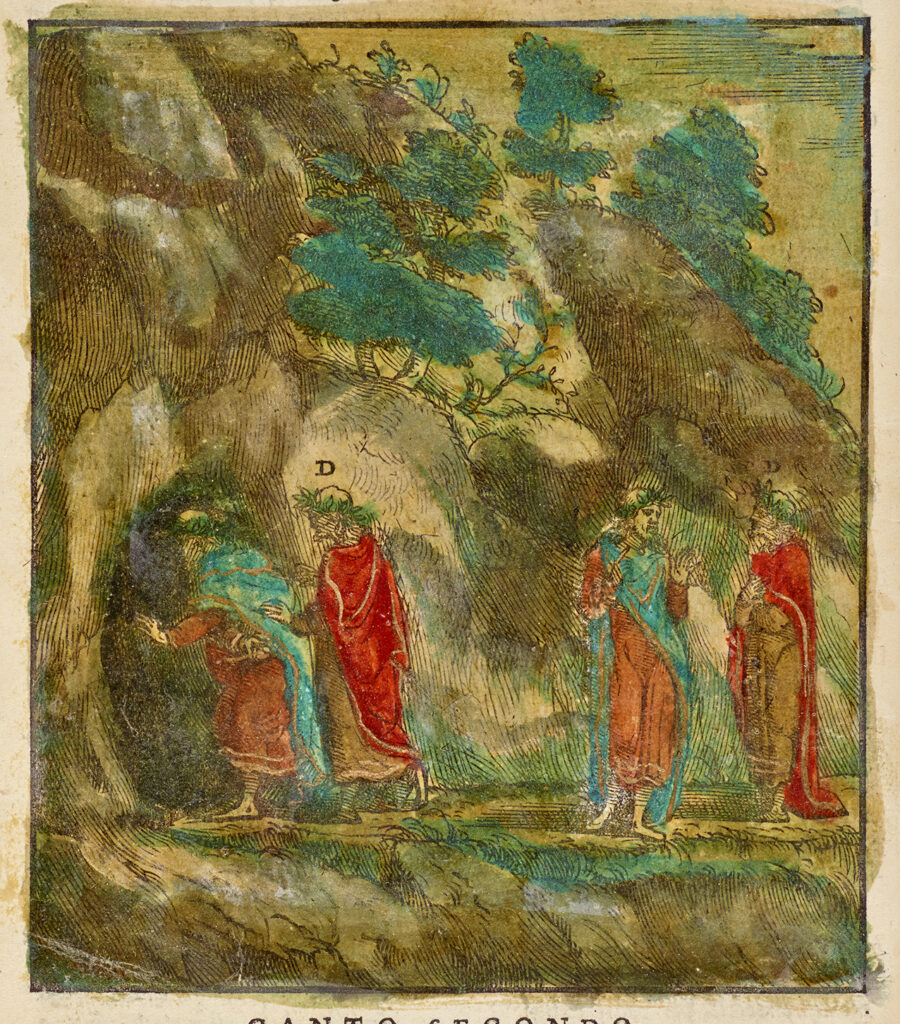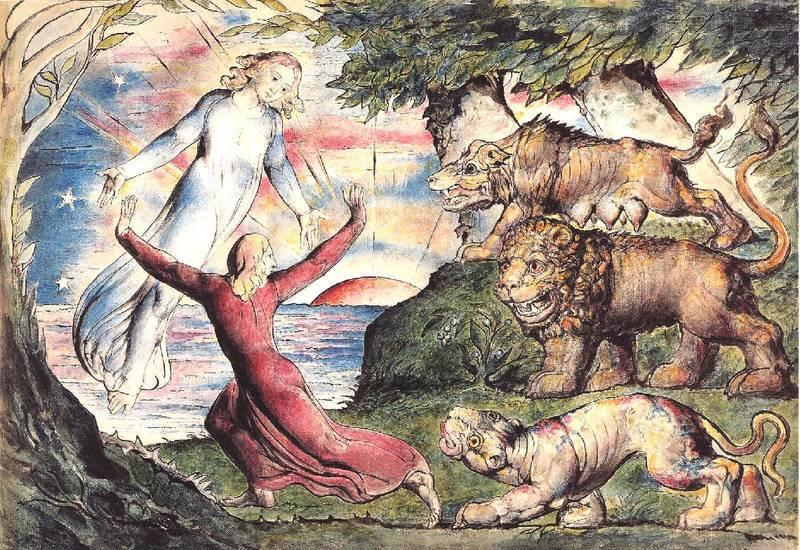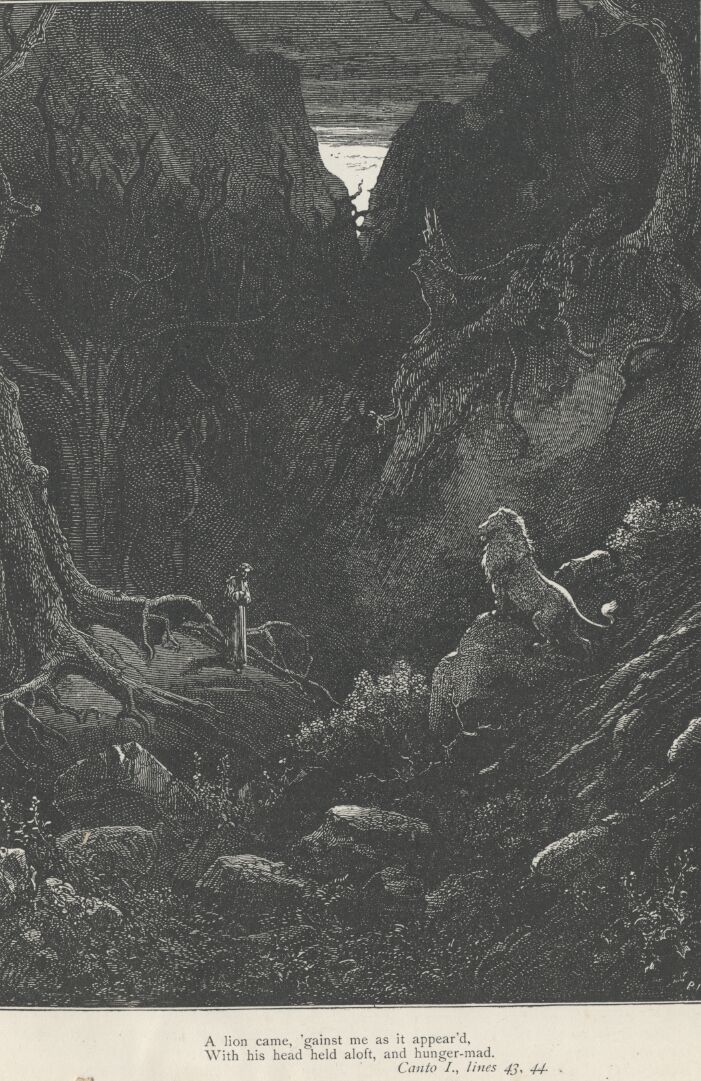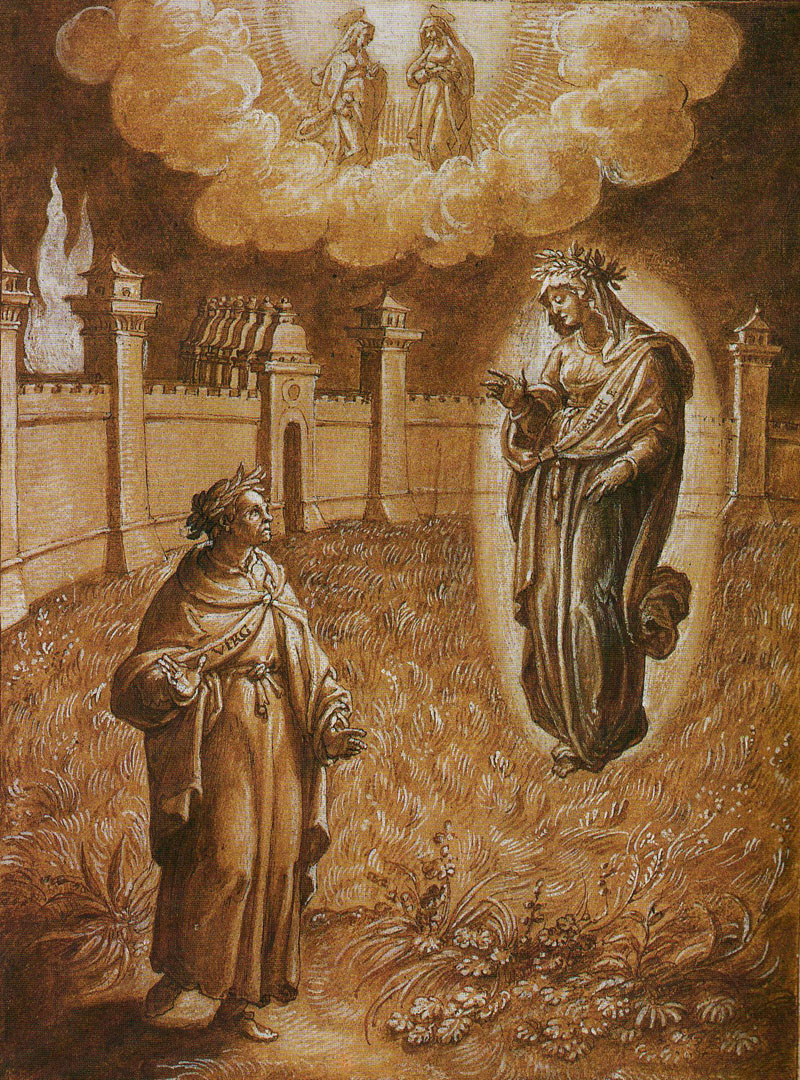In canto 1, we get to meet Dante and Vergil. In this canto, Dante seems to feel hopeless, lost in life, and has some fear of death. He then encounters the three beasts and is cornered. When he begins to feel helpless, he sees a man and cries out to him. This person turns out to be Virgil, and responds to his cries. Virgil’s words to Dante describe a journey through an eternal place, where “… you will hear the desperate shrieks, you will see the ancient suffering spirits, who all cry out at the second death;”(Canto 1, line 115-117). With this, canto 1 introduces the entire comedy because Virgil talks about the journey through hell, purgatory, and paradise. Even before Virgil’s words, the three beasts can also be seen as an introduction to what may appear in the comedy. For example, the she-beast represents negative desires, and since they will go on a journey through hell, we can expect to see more creatures or things representing the negative side of mankind. Along with this, Virgil describes a happy ending, by saying that he will help Dante meet a woman, who we can assume is Beatrice, after reading Canto 2.
-Carl Delossantos, Tia Thompson, Alanis Rodriguez










